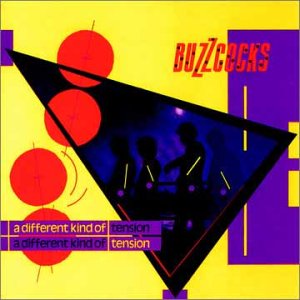
- Format: MP3

The final album of the Buzzcocks' first phase of existence is the most fragmented of the three, with increasingly ambitious songs fighting for time with tracks that sound much like the group's earliest efforts. Said songs are often quite good, like the opening "Paradise" or the great romantic angst of "You Say You Don't Love Me," but one can sense the band working to avoid the trap the Ramones fell into by simply offering up yet more soundalikes. Diggle makes a definite mark on this album, as on the slow crawl then fast thrash "Sitting Round at Home," a highlight of Tension that also features his electronically distorted vocals. "Mad Mad Judy" is a slightly more straightforward blitz, but with energy to spare and a spacious feel (credit again to producer Rushent). As the album closes, the sense of slight schizophrenia resolves itself as the group embraces all-out experimentation, producing some of the Buzzcocks' all-time best songs. "Hollow Inside" shows the band's knack for disguising scalpel-sharp sentiments with seeming simplicity, and the title track's contradictory slogans/demands disturbing robot vocals and nagging beat and melody up the ante even further. "I Believe" concludes things (aside from the fake found-sound snippet "Radio Nine") on the highest possible note. Shelley's slightly bemused recitation of all the things he believes in is suddenly interrupted by the line "There is no love in this world anymore," turned and electronically distorted into an obsessive, anthemic mantra as the band charges along with him up and out. An invigorating blast of, indeed, tension and angst, it alone makes Tension worth investigating.